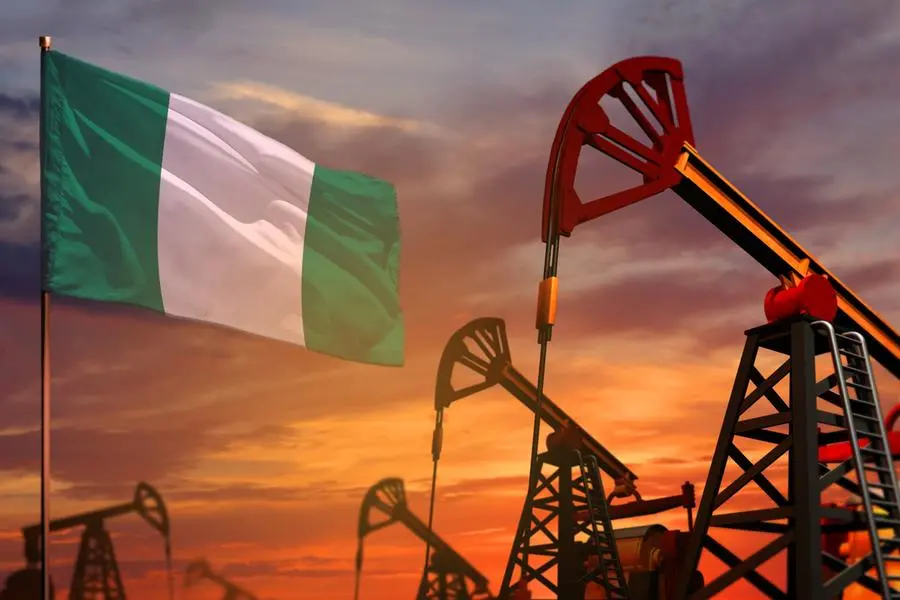PHOTO
When the Nigeria National Petroleum Company Limited (NNPC Ltd) began oil exploration in the North about two years ago under former President Muhammadu Buhari’s administration, it not only came as a sigh of relief for the region but a sign of progress for a country whose oil exploration has been in the southern part.
Oloibiri oilfield, located in present-day Ogbia LGA of Bayelsa, was the first commercial oil well in Nigeria as well as West Africa. Nigeria exported its first crude oil in February 1958 from the Oloibiri oil field.
The breakthrough (oil exploration) in the North came through the NNPC as the national oil company unveiled the discovery of hydrocarbon deposits in the Kolmani River II Well spanning Bauchi and Gombe States on the Upper Benue Trough, Gongola Basin, in the northeastern part of the country.
The oil wells OPLs 809 and 810 announced to be developed by Sterling Global Oil, New Nigeria Development Commission (NNDC), and NNPC Ltd, were launched by Buhari on November 22, 2022.
The oil wells (with one billion oil reserves) when developed, according to reports then, were expected to generate over N32 trillion. Giving update on oil exploration strategy in the North, NNPC’s Chief Corporate Communications Officer (CCCO) Olufemi Soneye, said the Federal Government, in compliance with the Petroleum Industry Act (PIA), is not only committed to achieving its oil drilling projects in the Northern part of the country but also as an economic reality to boost oil production and deepen the strength and efficiency of value chain in Nigeria’s petroleum industry.
According to the spokesperson, NNPC is leaving no stone unturned but rather will intensify efforts to ensure and expedite action on exploitation of hydrocarbon resources in the North.
“The company has been actively drilling in basins in and around Northern Nigeria, as a result of the need to increase oil exploration in the country’s frontier basins. This is a strategic engagement that NNPC Limited will not compromise on. NNPC Limited, in compliance with the Petroleum Industry Act, PIA, is leaving no stone unturned to continue oil drilling projects in the North after decades of exploration in other basins.
“With crude oil reserves of more than 37 billion barrels and the 6th largest world producer, the discovery of hydrocarbon deposits in the Kolmani River II Well on the Upper Benue Trough, Gongola Basin, in the northeastern part of the country will only accentuate the prosperity and growth of Nigeria in the comity of nations.
“It is therefore untrue for naysayers or skeptics to claim that NNPC has halted the search for oil in Nigeria’s inland basins. On the contrary, NNPC Limited is intensifying its patriotic efforts, making significant progress, and advancing considerable prospects to make do its promises no matter whose ox is gored.
“Instead, the company is intensifying efforts to expedite the process and ensure the efficient exploitation of hydrocarbon resources in these areas, thereby contributing to national energy security,” Soneye said.
Meanwhile, fuel scarcity has resurfaced in Nigeria multiple times in 2024, with reports of long fuel queues and price hikes. In April, the Nigerian National Petroleum Company Limited (NNPC Ltd.) cited logistical challenges as a major cause for the scarcity.
In July, fuel queues persisted in Abuja and surrounding areas, with many filling stations remaining closed and others increasing fares.
Also, in August, as a result of the EndBadGovernance protest which was held between 1st and 10th August 2024, the filling stations remained shut because of fear of being attacked by protesters.
To Nigerians, the fuel station owners were right as scarcity lingered but it became glaring that the protest had nothing to do with the protest and since then, the scarcity has persisted.
Other than coming out with releases citing rainstorms and lightning, distribution challenges, disruption in berthing at jetties, truck load-outs which it said have impacted fuel supply chain across the country, the NNPC has not addressed fully the root cause of fuel problem which has had negative effects on Nigerians’ economic and social well-being. Over the weekend in Abuja, although more filling stations were seen dispensing fuel to motorists, Nigerians expressed displeasure over fuel situation in the nation’s capital and its environs.
They called on government to work towards making the four refineries in Port Harcourt, Kaduna, and Warri resume oil production to tackle the fuel imbroglio in the country.
“I think it is high time the government fulfills their promises of making our refineries work again. If they do this, we are going to be better for it. Our refineries must be put in proper shape. We cannot be an oil-producing country and still be suffering.
“The fuel situation has had a lot of negative impacts on our businesses, family lives and livelihood. Government should come clean about it and let us know where we are heading to,” a motorist told Nigerian Tribune.
All efforts to reach out to NNPC’s CCCO, Soneye, to comment on the statistics on the quantity of petrol supplied to each of the six zones in the country in the last one week proved abortive, as he did not respond to WhatsApp message sent as at the time of going to the press. The fuel scarcity still bites harder and is taking its toll on productivity across Nigeria.
Copyright © 2022 Nigerian Tribune Provided by SyndiGate Media Inc. (Syndigate.info).




















